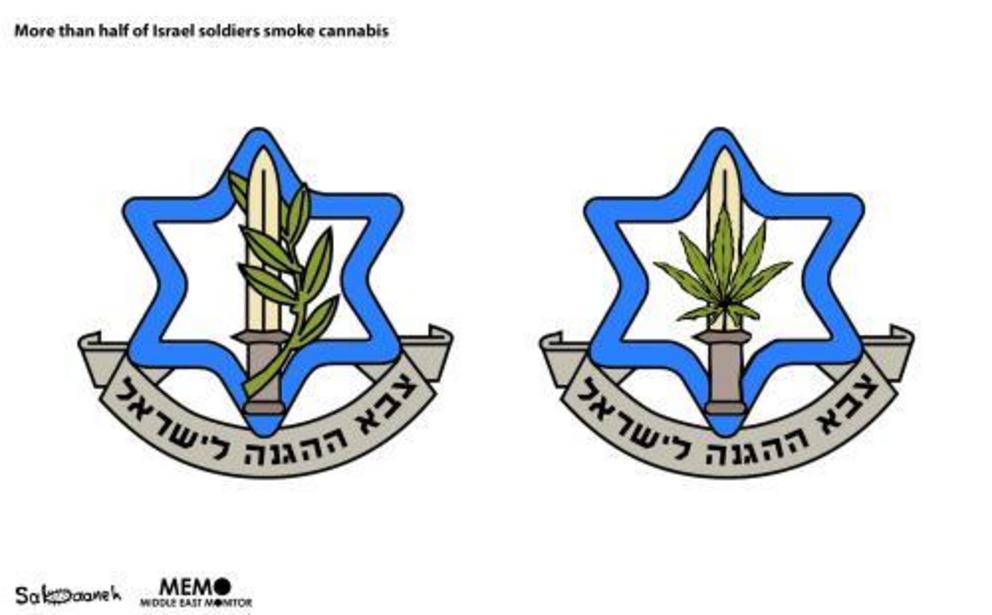How Israel armed the drugs cartels – part 1
When I lived in the West Bank a decade ago, I heard from Palestinians in both Hebron and Jerusalem more than once that the Israeli occupation forces tolerate or even encourage the sale of hard drugs among the Palestinian population that they control. The theory was that it was an attempt to encourage a sense of chaos and disorder, empowering local gangsters in order to play divide and rule against the Palestinian population.
It is certainly a fact that Israel has long maintained a network of collaborators within the Palestinians of the West Bank. These are often armed by Israel, and are usually recruited from amongst the most corrupt and thuggish criminal elements.
Take, for example, the strange case of Zohair Hamdan, which I reported back in 2012. A Palestinian resident of east Jerusalem, Hamdan was described by one Israeli reporter as “a proud collaborator” with Israel. The man and his sons were heavily armed and were suspected by the local Palestinian population of being Shin Bet agents, working for Israel’s criminally violent domestic intelligence agency.
Despite the faintly ridiculous efforts of one discredited journalist to portray him as some sort of “peace activist”, Hamdan was in fact a petty criminal, thug and fraudster. As such, he was a perfect fit for Israel’s secret police. After falling out with his handers, he went to jail in 2011.
According to a Jerusalem district court document, the charges against him included fraud, assault, threats, harassing a witness, attacking a policeman and intentional destruction of property.
Aside from anecdotal accounts, though, I haven’t seen any hard evidence showing that Israel encourages the proliferation of drugs among the Palestinians.

More than half of Israel soldiers smoke cannabis – Is the peace possible when you are on drugs… – Cartoon [Sabaaneh/MiddleEastMonitor]
However, there is ample evidence that Israel has aided, trained and armed criminal drugs cartels around the world. In large part, this was a component of Israel’s role as a proxy of US imperialism in Latin America during the 1980s. Israel continues in this proxy role today, with its arming of the Azov Battalion in Ukraine, one of the country’s most well-equipped neo-Nazi militias.
As I revealed in my report for The Electronic Intifada last week, the stepping-up of Israeli support for this violently anti-Semitic, armed, terror group is likely due in part to recent moves in the US Congress to end the arms and training it gets from Washington.
This Israeli proxy role allows the US President and security establishment entities such as the CIA to skirt around limits imposed on them by elected lawmakers. As well as Israeli aid to Latin American drugs cartels, there is evidence of Israeli involvement in the trade elsewhere.
According to former Mossad officer Victor Ostrovsky in his book By Way of Deception, the Mossad intelligence agency used the Thai heroin trade as a way to raise funds for top secret operations on US soil, which were very hush-hush because it is likely that they were actually against US law.
“The Mossad had made its first contact with the opium growers in Thailand [in the late 1970s],” Ostrovsky wrote. “The Americans were trying to force farmers to stop producing opium and grow coffee instead. The Mossad’s idea was to get in there, help them grow coffee, but at the same time help them to export opium as a means of raising money for Mossad operations.”
The example of one such top-secret operation that Ostrovsky cites are the efforts in the US to undermine the Arab diplomacy which was then pushing for the Palestine Liberation Organisation to achieve greater United Nations recognition. A contemporary UN report on Thailand backs up Ostrovsky’s claims about Israeli involvement in the coffee-growing cover programme, at least.
The approach of Israel’s intelligence agencies – as with many countries’ spy agencies – seems to be that the ends justify the means. The goals of the Israeli state are so self-evidently righteous, the thinking seemed to be, that funding them with off-the-books drugs money was par for the course.
Israel’s involvement in the South American drug trade is far better documented, however, if still not very widely known. Andrew and Leslie Cockburn’s book Dangerous Liaison contains a large amount of key reporting on the issue.
In the 1980s and early 1990s, the so-called “King of Cocaine” was Pablo Escobar, the leader of Colombia’s notorious Medellin Cartel. At the height of his career, Escobar’s cartel was responsible for some 80 per cent of the cocaine smuggled into the United States. One estimate put his net worth at $30 billion.
Books, films and TV shows have been made about Escobar, including the popular Netflix series Narcos. What is perhaps less well known is that the cartel’s military forces were trained and armed by Israel, whose Colonel Yair Klein trained and armed the militias founded and controlled by the Medellin Cartel’s military leader.
Read part 2 here
The views expressed in this article belong to the author and do not necessarily reflect the editorial policy of Middle East Monitor.
This work by Middle East Monitor is licensed under a Creative Commons Attribution-NonCommercial-ShareAlike 4.0 International License. If the image(s) bear our credit, this license also applies to them. What does that mean? For permissions beyond the scope of this license, please contact us.

![Drugs [File photo]](https://cdn.nexusnewsfeed.com/images/2018/6/2011_6_20-drugs5851768737_8f87134bf2_o-1532729893045.jpg?w=992&h=744)